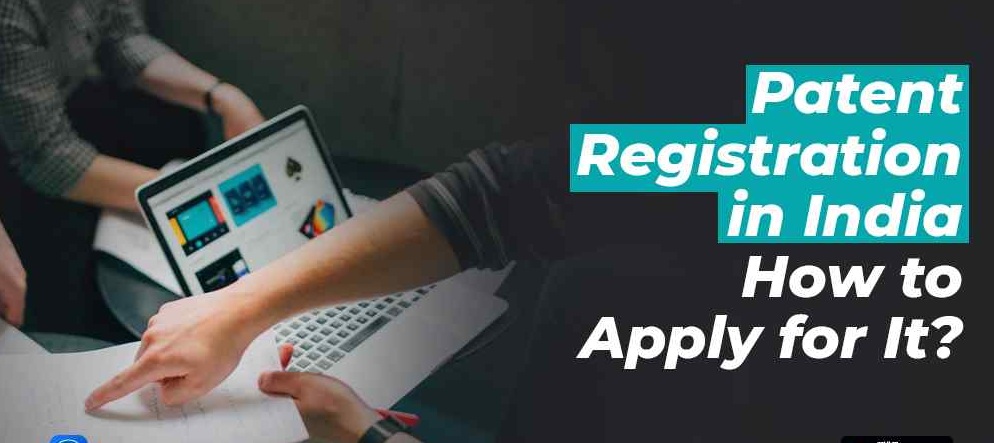Mandatory provision of patent registration in India
Mandatory provision of patent registration
On the conjoint reading of both the above Sections, it is clear that there is a mandatory provision provided under section 8 where under the applicant for patent is under obligation to disclose the information to the Controller of Patents regarding any patent application which is pending in the country outside India in respect of the same or substantially the same invention or where to his knowledge such application is being prosecuted by some person through whom he claims title, he shall file along with the same subsequently a statement setting out the detailed particulars of such application and also give an undertaking to that effect.

It is also manifest from the collective reading of Section 64(m) with that of Section 8 that the consequences of not disclosing the information as per Section 8 would lead to the revocation of patent as the violation of Section 8 can be raised as a ground for revocation of patent and the same is permissible by way of Section 64(1) (m). The question then arises for consideration is as to what extent the disclosure is required to be made by an applicant for patent in the Patent Office and how the Court has to deal with the same when the violation of the said provision is pressed into service by calling upon the Court to examine as a ground of rectification or revocation proceedings.
It is also seen from the reading of said Section that Section 8(1) covers within its sweep not merely the applications which are being prosecuted at the time of filing of patent, but also the other applications which are filed subsequently during the time when the prosecution before the Indian Patents Office is underway. This is clear from the undertaking which the applicant for patent has to give under clause 8 (b) relating to the applications preferred in countries outside India subsequently to the filing of statement referred to in clause (a). Careful examination of entire scheme of Section 8(1) of the Act would reveal that the Section-8 is aimed at to provide the Controller true and faithful disclosure of all= the information relating to the applications for patents which are same or substantially the same invention and also to provide the information to the Controller in relation to the title of the said Patent owned by the applicant and the other persons in the foreign countries. Thus, the twin requirements of ascertainment of the foreign applications relating to the same or similar patent, the title and details contained in those applications have to be furnished and complied with mandatorily in order to apprise the Controller about the current developments in relation to the inventions in foreign countries which are same or substantially the same. This is due to the reason that when the Controller is abreast with the updated information provided to him as to the development and the prosecution trend going in foreign country, then the same may affect his decision making in adjudging the substantial issues arising in the patent including the aspect of prior art, title, obviousness or other related issue depending upon the views which the other foreign offices take in relation to the same or substantially the same invention and that is why, it is the bounden duty of the applicant for patent to keep the Controller informed from time to time in relation to prosecution progress and also coupled with the title aspect in relation to patents to the Controller and any violation of the same may attract Section 64(1)(m) of the Patents Act upon the insistence of the adversary party.

This is the only way Section 8 and Section 64(1)(m) can be reconciled and interpreted. Otherwise, curtailing the sweep and ambit of Section 8 would mean that it will become highly difficult to examine as to what sort of information was mandatorily required and what was not required. It is, however, to be noted that the necessary ingredients noted above must be satisfied in order to attract Section 8 which include foreign application or the application outside India and not the Indian application. Therefore, the expression “any other application” should also be read in the context with the accompanying words which are “relating to the same or substantially the same invention if any filed in country outside India” only in relation to foreign applications which is also clear from the head note as well as from the ingredients of Section, the said provision will attract in relation to Indian application. Therefore, the Court seized of with the revocation under section 8 must confine itself to the enquiry which is permissible under section 8 and not beyond the same which is relating to information and undertaking regarding foreign application and the aspects relating to the same.
The language of Section 8 is very clear where under it is stated that there is a continuous duty of the inventor or the applicant for patent to inform from time to time the Controller about the developments in the patent including filing of subsequent applications in foreign countries relating to same or substantially the same invention. If in the light of the day, which is today when the plaintiffs once faced with the challenge from the defendant as to validity of the suit patent and as to the fact that drug sold in the market corresponds to the suit patent IN’774, is urging that the existence of Polymorphic version B and the usage of the same in the market of the said version is immaterial as suit patent IN’774 and its subsequent Polymorphic versions are the same, then it does not lie in the mouth of same very plaintiffs to urge to the contrary while filing two applications for patents in India as IN’774 and In 507 to contend that they are distinct from each other. It is legally untenable to say that the plaintiffs were under the belief that US’221 was a different invention at that point of time and it is only when the Patent Office declared in December 2008 as a deeming fiction that they are substantially the same, this has been learnt by the plaintiffs and by the time IN’774 was granted. The plaintiffs who claim to be one of the leading companies in medicinal research and masters in chemical science cannot be oblivious to the fact that conversion of one compound into another Polymorph version may be either same or similar to the earlier version of the compound. It is not reasonable to presume that upon the decision of the Controller in the year 2008 only, the said researchers remained in the company of plaintiffs were enlightened of the fact that both the patent are actually the same or substantially the same inventions. Therefore, it cannot be said that it is only later on the patentee was able to understand the similarity between the two inventions.
Likewise, the stand of the plaintiffs that both the inventions are different also seems unjustifiable in the light of their present stand before this Court and no other response has been made except what has been discussed above in detail by the plaintiffs. Consequently, the ground of violation of Section 8 read with Section 64(1)(m) is made out. However, still there lies a discretion to revoke or not to revoke which I have discussed later under the head of relief. Under these circumstances, even in case, the said compliance of Section 64(1)(m) of the Act has not been made by the plaintiffs, still there lies a discretion in the Court not to revoke the patent on the peculiar facts and circumstances of the present case. The said discretion exists by use of the word “may” under Section 64 of the Act. Thus, solely on one ground of non-compliance of Section 8 of the Act by the plaintiffs, the suit patent cannot be revoked.
For Patent Registration in India -> Click here